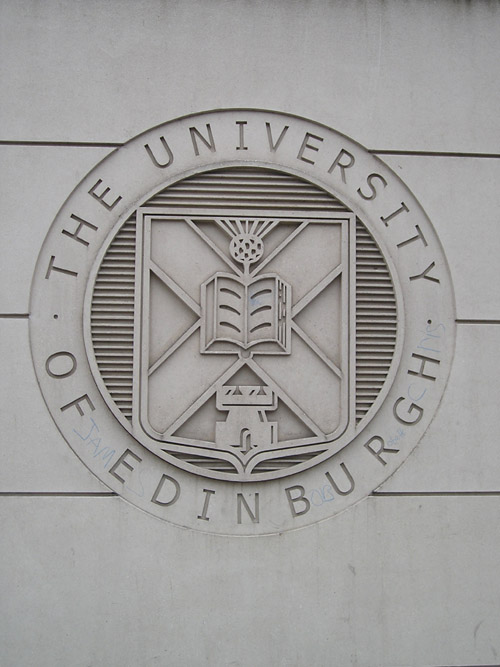SPEAKERS have boycotted a debate on political correctness after the student organisers used a golliwog to promote the event.
At least out of four speakers – including MSP Marco Biagi – have turned their backs on the Edinburgh University Debates Union event.
The decision to use a golliwog in the promotional poster was described as “ill-considered” and puerile.
The poster, which also made reference to the controversy over Christmas cards and the “Gingerbread person”, was displayed in the union building.
The organisers of the debate, which was scheduled for Wednesday, have apologised and removed the poster.
It remains unclear whether the event will be cancelled altogether or replacement speakers found.
Participants are set to debate the motion that: “This house believes political correctness has gone too far.”
But SNP MSP Marco Biagi, said that the event had been clouded by the “offensive mistake” and he would therefore be pulling out.
He said: “I have spoken at EUDU events in the past and I know they are free forums for mutual exchange of views.
“I am always ready to debate mutual respect – or ‘political correctness’ as it is sometimes dubbed by its detractors.

“This event has though come under a cloud due to a crass and offensive mistake in how it has been publicised.
“While the material was after some discussion withdrawn, this will always now be remembered as ‘the debate with the gollywog poster’ and is irreparably tarnished. In light of that I believe the event should be reconsidered.
“I will be withdrawing from the event, but I do hope that there will be an opportunity to return to the serious matters it has thrown up in a more measured and less sensationalist way in future.”
MEP for south east England David Bannerman and Fred Mackintosh, an advocate and teaching fellow at the Edinburgh University’s Centre for Professional Legal Studies, have also withdrawn.
Mr Bannerman said that he was “very disappointed” at the use of the golliwog image.
He said:“I am no fan of political correctness but I am very disappointed by the inclusion of a Golly logo on the banner. The advertising for this event has gone too far.
“It would seem that the poster was designed to stoke-the-fire rather than encourage a balanced exploration, and with that being the case, I must regrettably withdraw from the event.
“I hope people will see that in future the way to deal with issues like this is not to immediately jump to extremes, but to approach the subject with reason, argument and rationality.”
Mr Mackintosh said he had wanted to to take part to contribute a “liberal voice” and was disappointed to have to withdraw.
“I choose to conclude that inclusion of a golliwog in the publicity material is simply puerile and ill-considered, rather than something more sinister, and I hope it is not indicative of a widespread lack of consideration for others within EUSA.”
Edinburgh University law student, Marlena Valles, a member of the debates committee, defended the use of the image.
Miss Valles, who was at the centre of a Glasgow University debating row earlier this year when she claimed she had been subjected to sexist abuse, said that the golliwog image was not an “endorsement” but a “literal illustration” of the debate.
“I recognise that for many people the image of the golliwog is deeply distressing, but I want to stress that an image in a debates poster is never an endorsement. but is a literal illustration of the consequences of the sides of the debate.”
Despite Miss Valles’ defence, the convenor of the debating society, Euan McPherson, issued an apology.
He said: “We regret the image caused offence to some people, that was never my intention.
“Many consider the golliwog a highly offensive doll yet there continues to be a portion of society who believes its continual use to be appropriate.
“We understand the majority of those who commented feel there is no debate to be had not just on that issue but also political correctness as a whole. This is not the case beyond the university community – both the golliwog and political correctness are debated regularly in the national press. That is why we are holding our debate.”
The golliwog first appeared as a character in Florence Kate Upton’s novel The Adventures of Two Dutch Dolls.
The character also featured in the works of Enid Blyton.
In 1910, British jam manufacturer James Robertson & Sons used the character as their mascot.
Following a boycott of their products, the company dropped the image In 1988.
Earlier this year, Oxfam was at the centre of a row after it was selling second-hand golliwog dolls on their website.
A spokesman for Oxfam later apologised and stated that the dolls had appeared online due to an error.
In 2008, a shop in Lanark was also blasted by anti-racism campaigners after it was found to be selling a number of golliwog items, including a photo frame and a glitter snowglobe.
In 2009, Carol Thatcher was sacked from her slot on the BBC’s One Show after she made off-air comments comparing French tennis player, Tsonga, to a golliwog.

